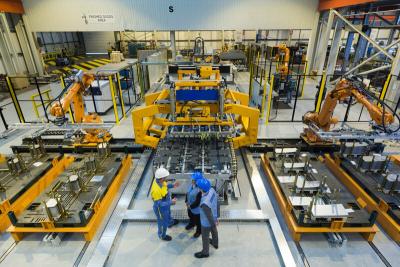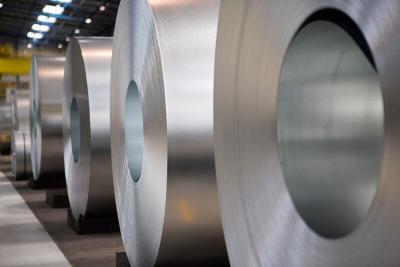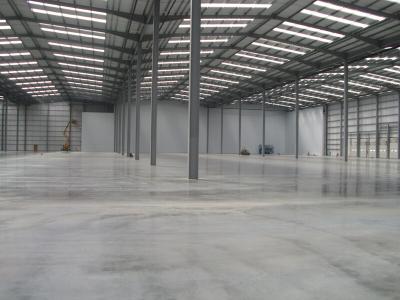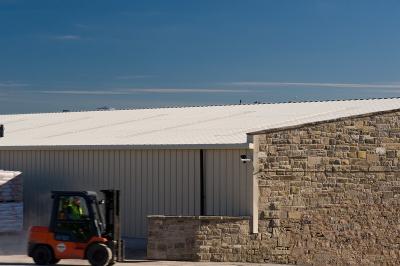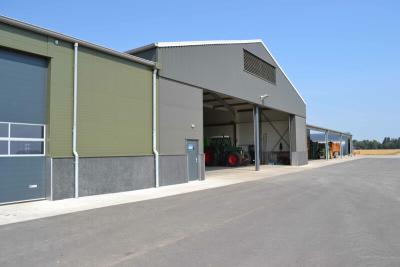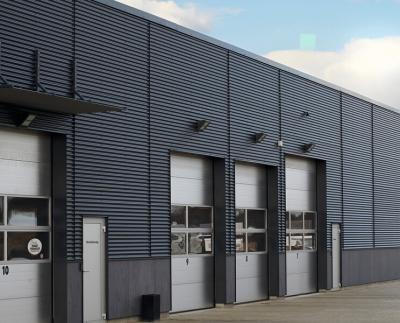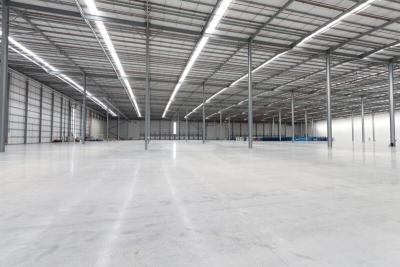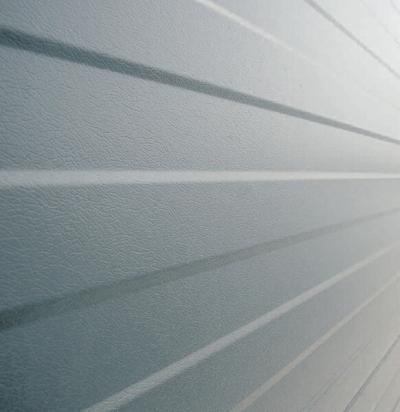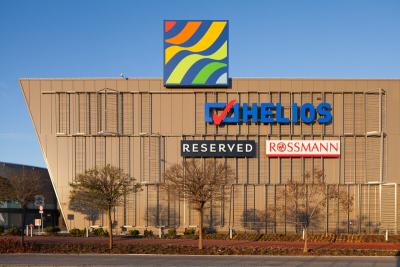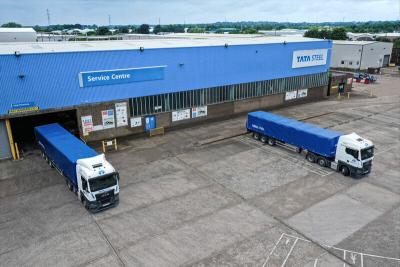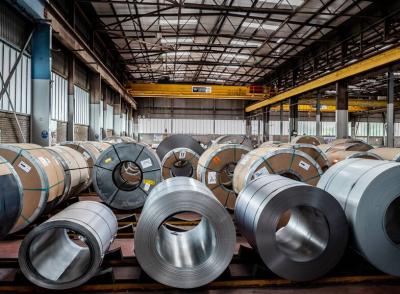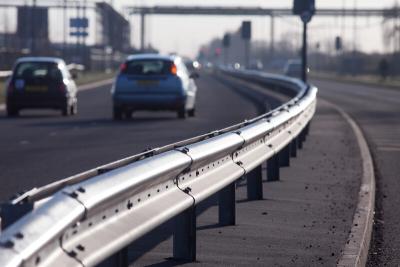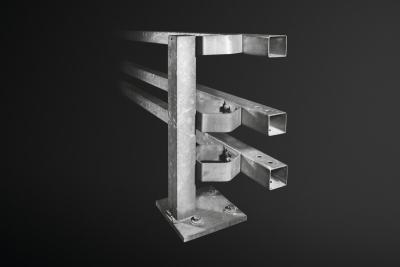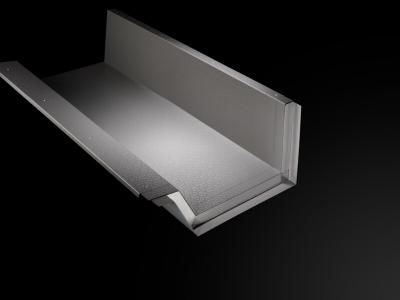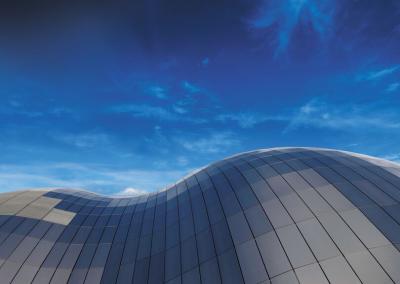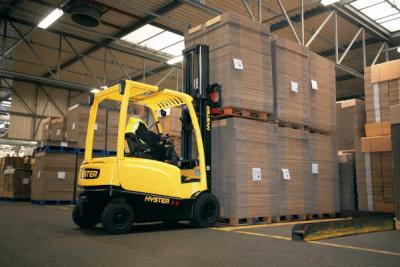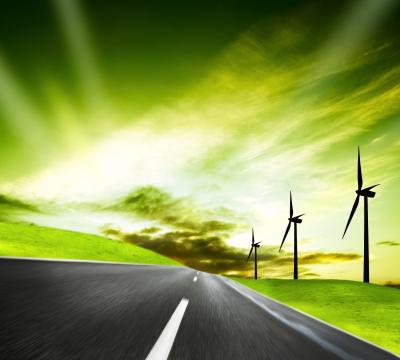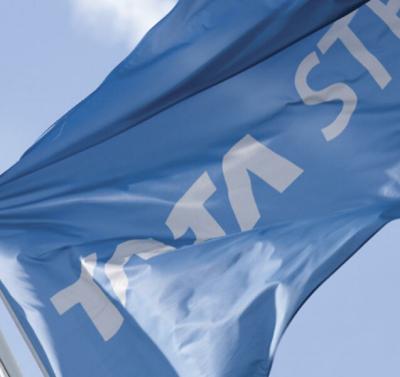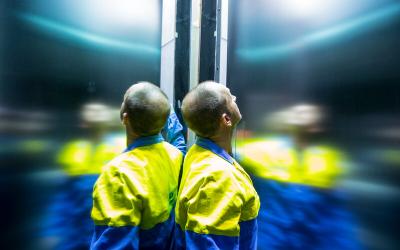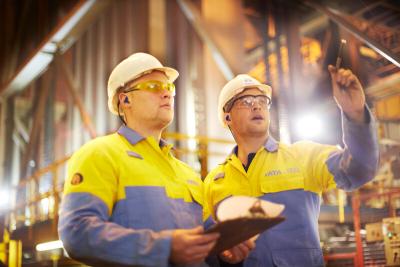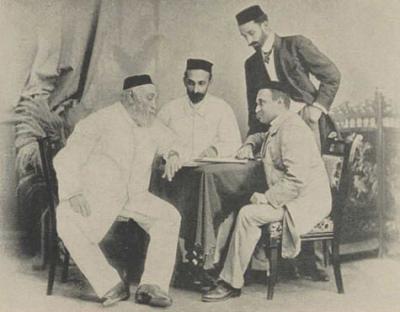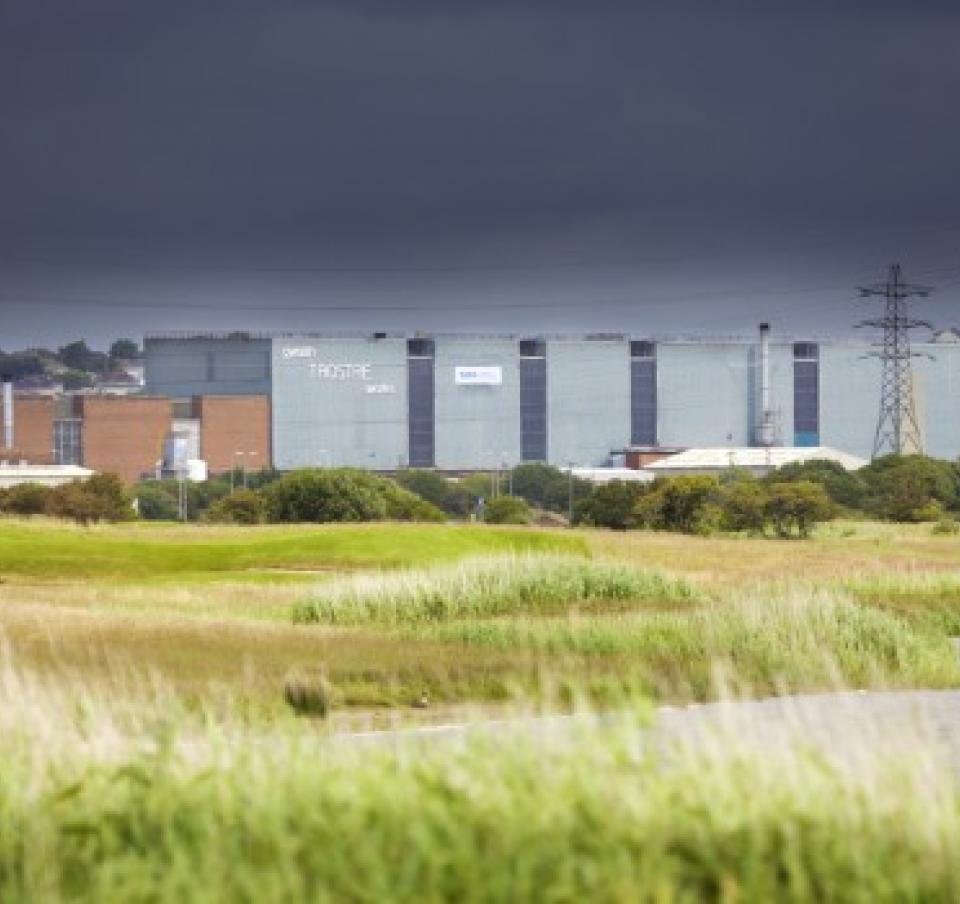Trostre Works is located in Llanelli, Carmarthenshire, South Wales, and manufactures approximately 400,000 tonnes per annum of tin, chrome and ‘polymer’ coated steels for the packaging industries. All steel packaging material produced at Trostre is 100% recyclable.
Trostre Works is located in Llanelli, Carmarthenshire, South Wales, and manufactures approximately 400,000 tonnes per annum of tin, chrome and ‘polymer’ coated steels for the packaging industries.
- Greenhouse gas emissions
- Resource use and waste management
- Water use
- Transport impacts
- Employment and skills
- Local communities
- Performance data
Greenhouse gas emissions
Trostre Works ISO14001 certified Environmental Management System details all process aspects and impacts, including those associated with all our Greenhouse Gas (GHG) emissions. The business operates a UK ETS GHG permit and is externally audited each year as part of the ETS allowance scheme.
Key focus areas for reduction in GHGs relate to the efficient use of all direct emission sources, such as natural gas and F-gases, as well as indirect emission sources from imported electricity. Specific 2021-22 priorities include;
- continual focus on all aspects of operational energy use associated with maintenance and performance of energy intensive users (e.g. furnace burners, HNx gases for annealing optimisation);
- reduction initiatives such as installation of higher efficiency induction heating, motors, pumps and drives;
- continual roll out of upgrading plant with more modern, higher efficiency lighting;
- improved furnace waste heat recovery, economisers and condensate return for the boiler plant; and
- reduced carbon footprint of all HRC feedstock (Port Talbot).
Energy consumption metrics are subject to regular audits through ESOS, NRW permits, monthly fiscal reporting and DSO business scorecard tracking.
All visitors inducted onto site undergo a basic awareness of environmental issues of which energy & CO2 is included. Full time staff receive a detailed awareness, and e-learning is being rolled out. The site has a dedicated (best practice) ‘energy dashboard’ at the site’s entrance and walkways to reinforce messages of energy efficiency.
Resource use and waste management
In line with waste hierarchy objectives to increase resource efficiency and reduce or eliminate waste to landfill, we have enacted a number of hierarchical strategies at the business over the past 4 years in order to become a “Zero Waste to Landfill” operation.
All steel scrap, by far the highest ‘recovered material stream’ is recycled back into Port Talbot’s steel plant.
- Our plan to become a ‘zero waste to landfill’ operation coincided with the 2015 IED directive across the business, and has striven to achieve this for its monthly targets since mid 2018 to date. Over 95% of our bulk hazardous and non- hazardous waste streams can now be reprocessed internally for reuse at Tata Steel Port Talbot, this target is tracked monthly.
- All waste oil, providing it meets QA, is diverted as the preferential oil supply for Coke Ovens coal injection due to its attractive high Esther content for maximising battery charge efficiencies.
- All iron-rich filter cake material is dewatered at site for subsequent reprocessing through the Port Talbot’s Sinter Plant, as an iron ore substitute.
- The site has dedicated waste segregation for plastic, wood, cardboard and paper. Where regulations prohibit recycling, e.g. broken pallets and cardboard cores, these are sent off as RDF energy generating sources. Any ‘general waste’ is also subsequently recovered at offsite depots.
- One of our Biproducts (Iron Sulphate Heptahydrate ) was classed as a key sector product during Covid periods of 2020 & 2021 (used as a treatment in domestic water industry).
We are continually investing in the UK's steel collection and recycling infrastructure, enhancing our own recycling capabilities.
The business ‘Packaging’ waste regulations & certification (Valpac) is managed at Trostre Works.
All products produced at Trostre are 100% recyclable.
To continue to meet our “zero waste to landfill” targets, the following must be optimised:
- Recovery of ‘non-hazardous’ iron rich filter cake waste material for 100% diversion from landfill disposal to reclamation and reuse at Port Talbot Sinter Plant as iron ore substitute.
- Recovery and reprocessing of all our ‘hazardous’ waste oil on site into Reprocessed Oil (RPO) as this provides the superior material for oil injection onto the coal batteries at Port Talbot Coke Ovens.
- Reclamation of all scrap steel sent back to Port Talbot steel plant for direct use.
- Recovery and purification of all available iron-sulphate hepta-hydrate (now listed as a key sector ‘product’ during lockdown).
- Continued improvement of all waste material collection and segregation on site. Most general waste is also now segregated at the offsite depot.
- Continued recovery of other hazardous waste streams, such as oil contaminated residue material, as ‘refuse derived fuel ‘RDF’ for post incineration electrical generation.
Water use
Water is an essential utility for all process lines, largely for rinsing and cleaning strip that is destined for the food and beverage industry. Over 90% of water supply is via our ‘untreated’ reservoir provision, and Trostre has enacted a number of improvements to optimise water consumption which have taken it from levels of over 40,000m3 per week at the time of our EPR permit application in 2005, to around 30,000m3 per week in 2018, and continually seeks opportunities to reuse any waste water.
Since our waste water is discharged into a RAMSAR site, (the highest ecological importance associated with fisheries), control and managing this is of primary importance.
This is achieved with;
- directing as much oil and chrome contaminated waste waters into dedicated treatment systems prior to discharge into the site lagoons;
- directing storm waters into separate pipework systems to boundary interceptors, prior to checking for discharge direct to estuary;
- all contaminated waters are processed through our effluent treatment plant; and
- implementing process improvements, such as via BREF or permit variations, to reduce the use of water via cascade rinses or closed loop cycles.
Transport impacts
While all business transport impacts are managed centrally within Tata Steel, the focus of all supply and most customer delivery is associated with the most effective means of transportation of coils, namely via rail.
Supply rail wagons of up to 1000 tonnes per day of HRC from Port Talbot works are the norm. Very few, if any, are transported by road.
Finished products have customers in many regions across UK and the world. While road delivery constituted the majority of this in the past, since 2016, greater volumes are now being discharged via rail.
All shipping activities are also managed centrally within Tata Steel. It is not possible to disaggregate the CO2 emissions associated with the production and delivery of specific products from specific locations from the total estimate of Tata Steel transport impacts.
Employment and skills
We apply a common approach to employment and skills at all, of its sites. See the Tata Steel web portal for general page for information on what [Tata Steel is doing to advance the learning and development of its employees].
Business HR activities now focus a greater attention on training and development needs for staff via “Peoplelink”. This is designed to match competencies and skills against job profiles. Internal or external training courses are identified to support this mechanism.
All new staff are provided with basic induction lectures, one of which is “Environmental Awareness and Sustainability”. E-learning modules are being developed to facilitate this.
Local communities
At the turn of the 20th century, Llanelli town was the world leader in ‘tin’ coated steels, and is still affectionately known as “Tinopolis”. The tin can was developed at factories in the area for storage of foodstuffs, which grew in importance during the first world war, followed soon after by the first beverage cans storing “Felinfoel Ale” from a local brewery. Many experienced workers migrated abroad to set up Tin production mills in America shortly after WW1. Trostre Works has been in operation since 1952, being one of the largest single employers in the county of Carmarthenshire, and sustaining the tradition of tin making in the UK.
It maintains close links with the community through various bursary awards and educational awareness programmes run in local schools and colleges. These aim to promote sustainability, environmental responsibility, life cycle and particularly our products which are 100% recyclable.
Apprenticeships remain one of the most important recruitment programmes for the continual supply of new staff, with particular emphasis on engineering courses run at the local HE college, “Coleg Sir Gar”.
The Environmental Management System details all aspects and impacts that can result in ‘external’ impacts, such as noise or odour, and proactively manages to eliminate all sources, and deal with any public complaints at the earliest opportunity.
The site is adjacent RAMSAR, SSSI & SAC regions, and is subject to stringent checks and legislation for their protection. As a consequence of this, Trostre welcomes many site visits from the ever growing body of stakeholders, such as the local authority, community council, welsh assembly government and other legislative bodies.
Performance data
| Trostre | | 2018 | 2019 | 2020 | 2021 | 2022 | 2023 |
| CO2 emission (t) | Verified EU ETS | 46,473 | 44,310 | 45,022 | 43,096 | 40,408 | 35,731 |
| Worldsteel scope | 116,977 | | 97,201 | | | |
| Water use (m³) | 1,668,382 | 1,582,545 | 1,608,347 | 1,562,867 | 1,839,860 | 1,573,242 |
| Waste disposed (t) (% of waste produced) | 4,967 | 10% | 2,094 | 24% | 1,520 | 18% | 817 | 10% | 57 | 1% | 0 | 0% |
| Waste recovered (t) (% of waste produced) | 43,781 | 90% | 6,774 | 76% | 6,801 | 82% | 7,737 | 90 | 8,436 | 99% | 9,333 | 100% |
| Justified complaints (n) | 0 | 0 | 1 | 0 | 0 | 0 |








